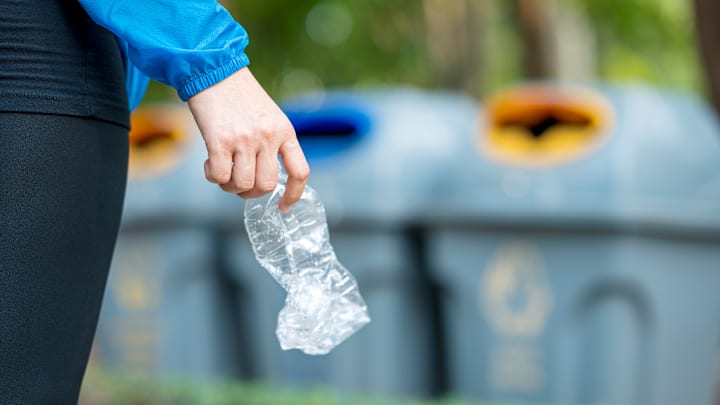Most people visit national parks expecting to see natural wonders like forests, waterfalls, and animals. What they don’t anticipate are mounds of trash left by tourists with no regard for how cigarette butts and soda cans impact the environment. Now, there’s an app to not only track this waste but eliminate it.
According to Travel + Leisure, the community advocacy group 5 Gyres Institute has launched an app dubbed TrashBlitz that aims to document discarded trash in national parks. By noting what types of trash are found, the goal is to inspire action to reduce the amount of waste sullying the scenery.
Suppose you’re walking through Yellowstone and encounter a site with a large amount of empty bottles or wrappers. You can use the TrashBlitz app to log the site and any cleanup efforts you undertake. That data, the company says, can then be fed into directives that can effect policy change, including potential waste reduction legislation and campaigns to remind visitors to clean up as well as use recyclable or reusable items.
The group’s 2024 clean-up effort [PDF] resulted in 259 separate “activations” at 58 different sites, including Yosemite National Park, Joshua Tree National Park, and Olympic National Park. The group compiled information as well as accounts from volunteers. Based on data recovered so far, the worst offender is plastic, which makes up roughly 77 percent of all trash reported. Food wrappers were the most predominant form of plastic litter, though soda bottles, cleaning wipes, and bottle caps were also common. Paper was the second material most likely to turn up, with metals and textiles making up the rest.
“I found handfuls of hard, colorful microplastics in the debris lines along the mangrove roots in Biscayne National Park,” one volunteer described. “I also found lots of weathered large plastics— bags, cups, and take-out containers—that were splitting and crumbling along the roads leading into Everglades National Park. The smaller the plastic becomes, the easier it is for it to enter food webs and the harder it is to be removed from the natural environment.”
TrashBlitz isn’t limited to parks or federal land: It can also accommodate local clean-up efforts on a community level. Recent reports have included surveys in Los Angeles, Denver, and Austin, Texas. Their efforts are being strengthened by legislation: In 2022, the U.S. Department of the Interior announced plans to ban the sale of single-use plastics in parks.
